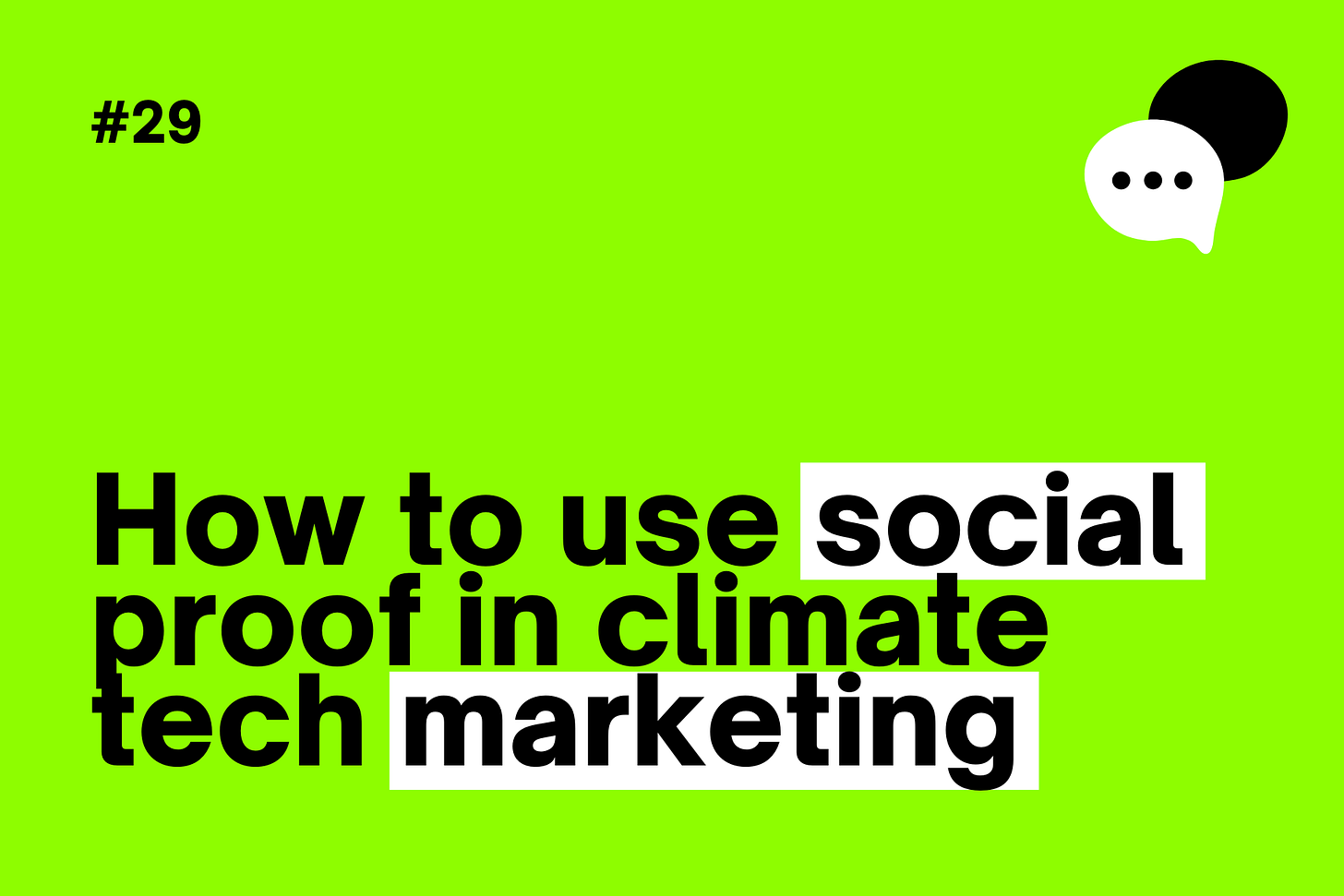Using social proof strategically
A shortcut to good decision-making
Hello friends,
This week we’re talking about how climate tech marketers can use social proof strategically to build trust and win new business.
Yep, it’s Part 3 of your 7-part series on the principles of persuasion.
But first up, our new website!
Amelia and I are now serving clients through The Climate Hub — a content, branding, and lead-generation agency for climate tech startups. Our goal: to put your marketing on automagic ✨
Okay, let’s dive in.
Popularity breeds more popularity
The principle of social proof tells us that something is correct because other people think it’s correct, too. It’s human nature — we look at others’ behavior to determine what to do in a situation. It’s a shortcut to what we hope is good decision-making.
It’s why closing a deal that was referred to you is so much easier than one that came to you through high-level search. Someone they trusted trusted you, and now they feel like they can trust you, too.
Social proof works best under three conditions:
Uncertainty
When we’re unsure of ourselves — and seeking a new, better future (as are all individuals looking to make a purchase) — we’re more likely to look to others’ actions to guide our own.
In the case of climate tech, uncertainty is a pillar. Many who make buying decisions about climate tech solutions will be doing so for the first time. And because they don’t have existing experience to draw on, they’ll resort to social proof to help them.
The many
The more, the merrier. Social proof is amplified by the many. Case studies, logos, and testimonials grow more powerful with volume.
Similarity
Social proof is more impactful when it comes from people who’re like us. The case studies you promote most heavily should be about the customers most similar to the customers you want to serve in the future.
Here, similarity and relevance trump brand recognition. Prospects won’t care that you’ve served Microsoft if it’s irrelevant to the problem they need help solving.
Next steps
If you’re here, you understand the importance of social proof. But this week, we’re asking you to audit your collection.
Do your marketing materials acknowledge the uncertainty your customers face?
Is your logo bar up to date?
Have you sourced testimonials from your happiest customers? (And have you published them? Have you placed testimonials strategically — i.e. product testimonials on your website’s product page and service testimonials on your contact page?)
Do you have a system for developing compelling customer success stories — and getting those customers to participate and sign off on the final product?
Are you promoting the case studies that are most relevant to your ICP?
Until next time, friends.



